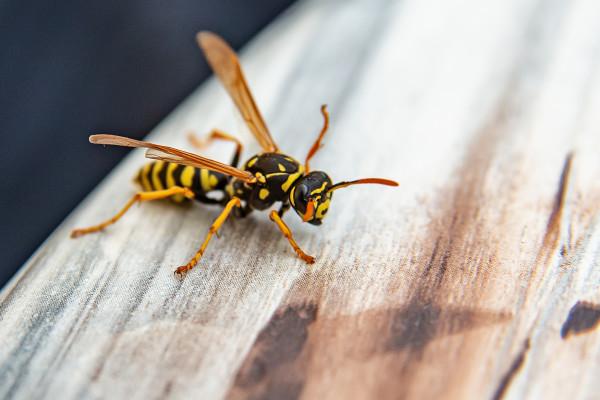5 Tips For Stinging Insect Pest Control For Your Business
Shorter days and cooler nights signal the transition from late summer to early fall and a reprieve from the extreme temperatures and prolonged humidity. But there remains a lingering — and potentially painful — threat to your business.
Stinging insect populations of wasps, bees and hornets are peaking as colonies have reached their largest sizes by late summer. They become more aggressive and intrusive as they scavenge for food to sustain their colonies before the winter. These trends differ among species and regional factors, but not many of us will avoid peak pest season.
Stinging insects can become a problem for any business. Bees and wasps can be a danger to your employees and customers, causing painful stings and sometimes life-threatening allergic reactions. Some stinging pests, such as wood-damaging carpenter bees, can cause structural damage to your business if they nest within walls or roofs, resulting in costly repairs.
Read on to equip yourself with the knowledge and tools to help safeguard your property from the most common types of stinging pests. If you encounter any problems, call your trusted pest control provider for assistance.
-
Inspect for Nests: Because of the exponential growth of social insect nests, regular inspections and early detection are key for controlling stinging pests.
-
Look for potential nesting sites for stinging insects near eaves, cracks that lead to voids in walls or attics, trees, holes in the ground and the roof to sliding junction point of a gable roof.
-
Document areas of activity and what time of the day the bees/wasps are being observed and report findings to your pest control professional.
-
Partner with your pest control provider to identify the type of nest you find and help remove, because treatment strategies can vary. Stinging pests are like other overwintering pests and wildlife — you must wait until the nest is removed to perform exclusion methods.
-
-
Secure Your Exterior: If your facility does not have an existing pest infestation, you can prevent access with exclusion tactics.
-
Seal cracks or openings where stinging insects like wasps, bees or hornets could enter with caulk or another suitable material to prevent access.
-
Install weather stripping and screens on windows, doors and vents to block their entry.
-
Ask your pest control provider about maintaining positive air control.
-
-
Keep Food Areas Clean: Stinging pests like yellow jackets are notorious foragers — they search for exposed food products, particularly sugars and carbohydrates. That’s why proper food storage and food waste handling is critical to your facility’s pest control plan.
-
Ensure food is stored properly using tightly sealed containers.
-
Wipe down surfaces before and after use.
-
Implement a strict waste management system to help minimize food attractants.
-
Ensure trashcans are tightly sealed when not in use and empty them as soon as they fill up.
-
Keep the dumpster lid closed and clean inside your dumpster monthly.
-
-
Educate Staff and Customers: Employee and customer safety should always be the priority when dealing with stinging insect activity. Orkin educates its Pros and customers on the following safety protocol to help minimize harm.
-
Train your employees on how to identify common stinging insects in your area. Learn to recognize their appearance, behavior, nesting habits and the signs of an infestation.
-
Display signs or provide educational materials for customers about proper waste disposal and how they can help prevent attracting stinging pests.
-
Educate staff and customers on what to do if they get stung. There are varying degrees of allergic reactions and some people become more allergic over time. Make sure teams know to keep an eye on someone who has been stung.
-
-
Seek Professional Help: Work with your professional pest control provider to develop an integrated pest management plan and treat any nests found on your property.
-
Frequent and proactive inspections are key. It’s easier to treat nests earlier in the season before they reach peak size.
-
In some cases, traps placed out early in the year can capture pests like yellow jackets before they reproduce and start new nests.
-
For many types of stinging pests, the only way to rid them from your property is to remove the hive entirely. It can be tempting to remove wasp nests or beehives yourself, but this requires the right tools and strategies, so always involve your pest control provider.
-
Treatment strategies vary by species, so contact your pest control provider immediately upon noticing bee or wasp activity. For certain pests, such as honeybees that are highly beneficial to the environment, relocation/removal done by a professional is paramount. If a hive is disturbed through improper removal, it can prompt an aggressive, antagonistic and perhaps medically hazardous response from the hive. Be sure to check local regulations regarding honeybees. Many states have legal restrictions in place protecting these bees.
-
Being proactive and following these tips can help protect your business from the most common types of stinging pests. The best first step is to work with an experienced pest control provider who can help you spot pest problems before they escalate. Contact Orkin today to schedule a free, comprehensive pest inspection of your facility with a well-trained Orkin Pro™.
